Contextual understanding Reading Worksheets for 6-Year-Olds
6 filtered results
-
From - To
Explore our engaging Contextual Understanding Reading Worksheets for 6-year-olds, designed to enhance critical reading skills through fun and interactive activities. These worksheets help young learners identify context clues, improve comprehension, and foster a love for reading. With vibrant illustrations and age-appropriate texts, children will develop their ability to infer meaning and understand themes. Each worksheet encourages children to think deeply and respond to questions that challenge their thinking, making learning enjoyable and effective. Perfect for classroom or home use, our worksheets provide essential practice that prepares kids for successful reading experiences. Unlock the joy of reading with our thoughtfully crafted materials!
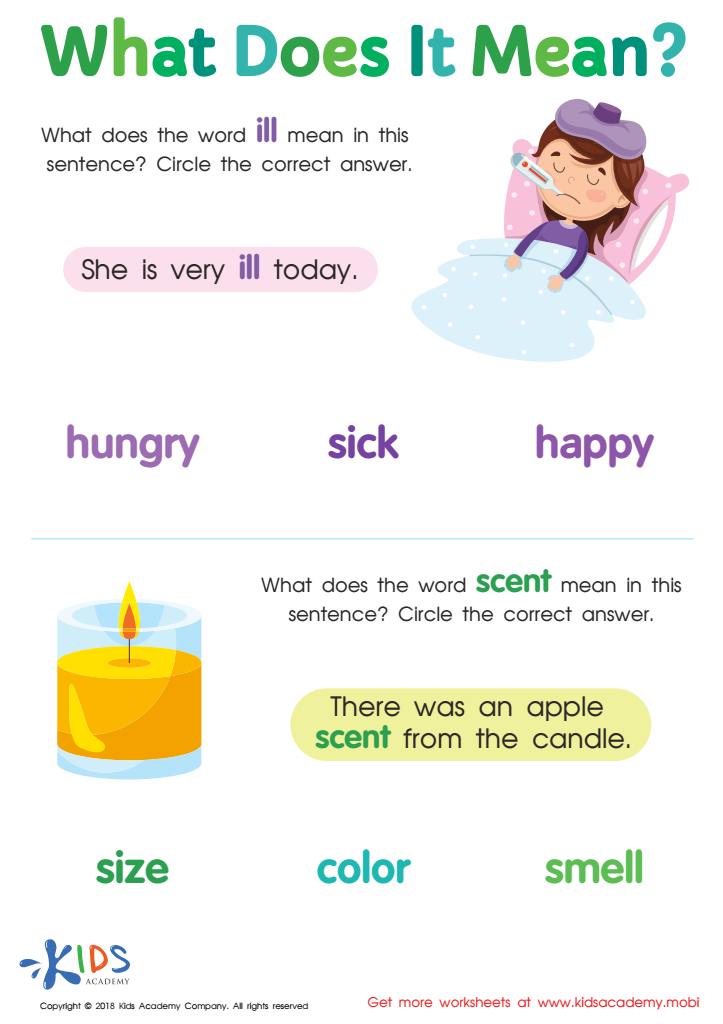

What Does It Mean? Worksheet
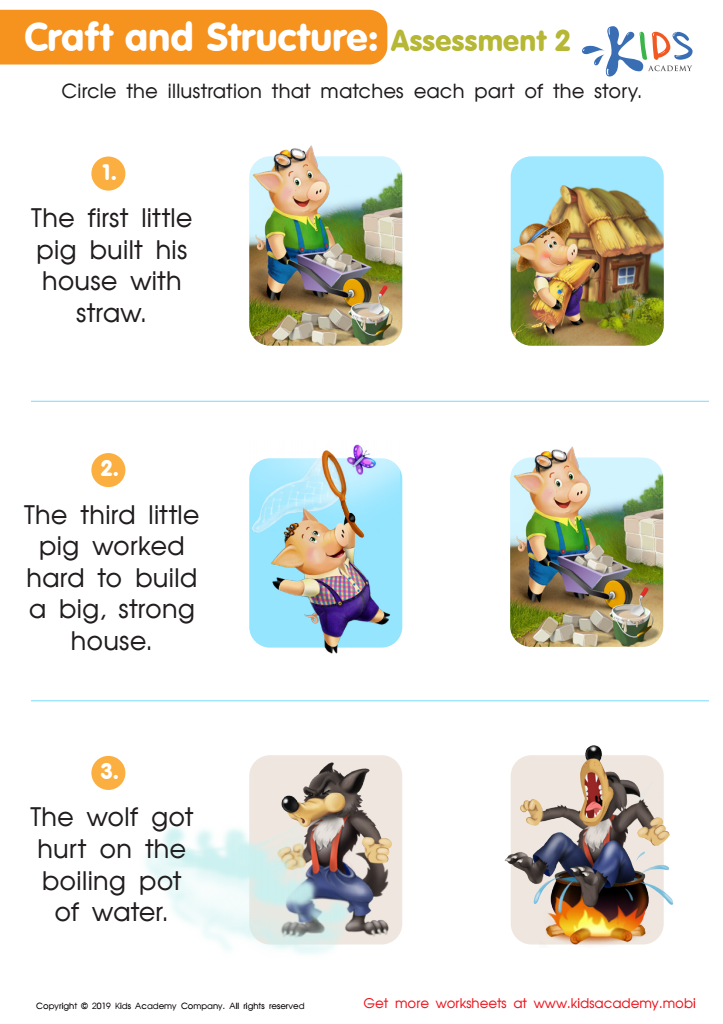

Craft and Structure: Assessment 2 Worksheet 2
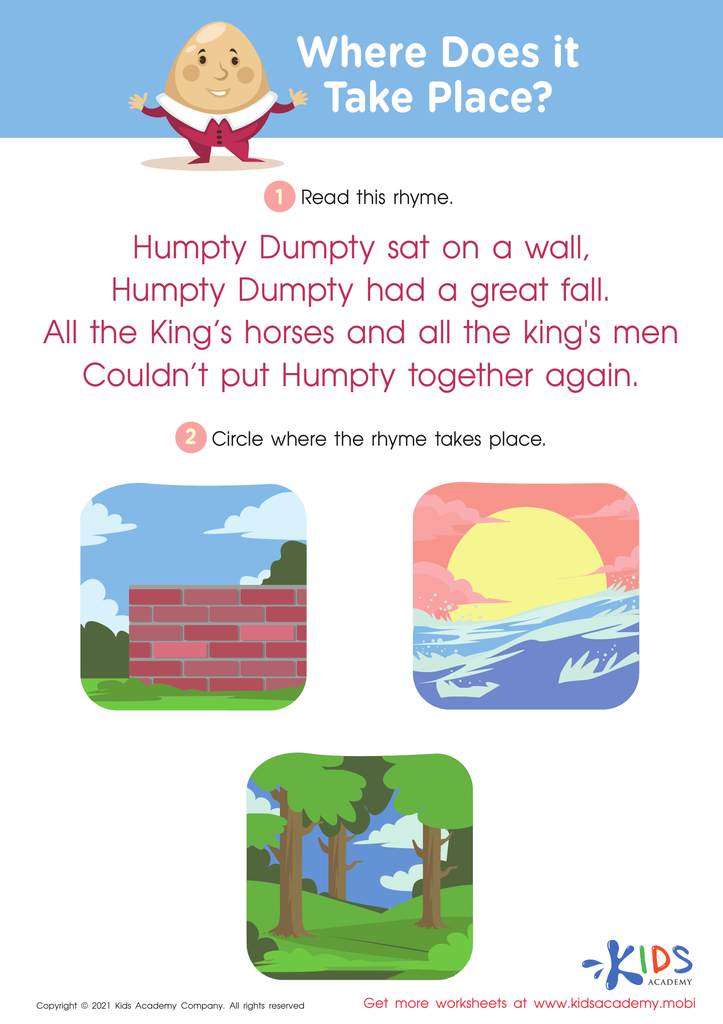

Where Does It Take Place? Worksheet
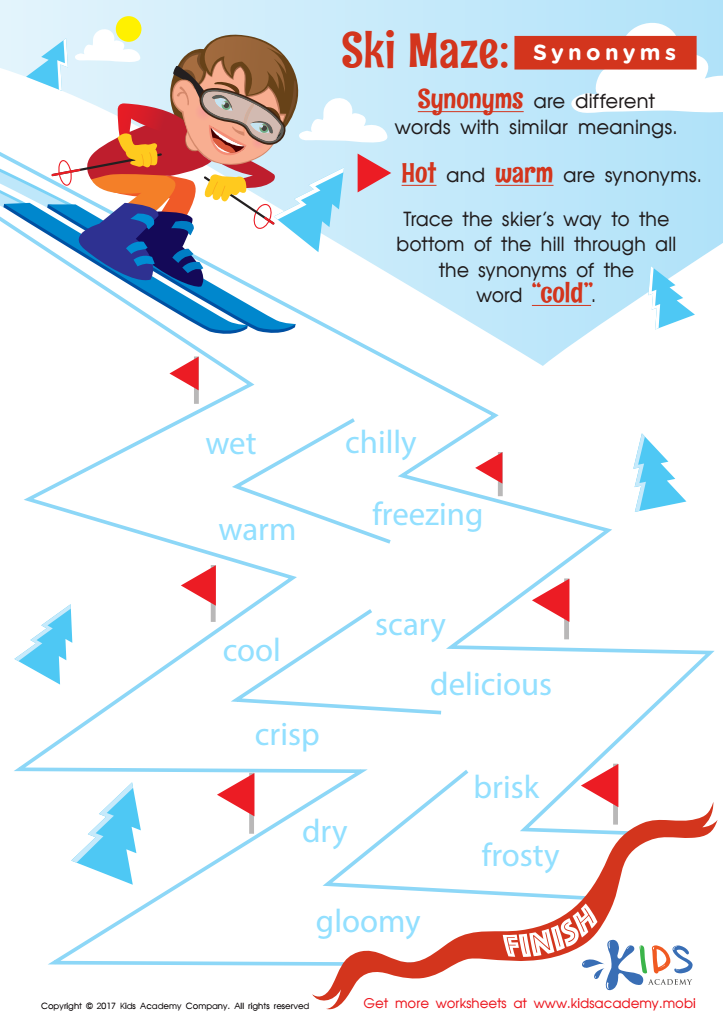

Free Printable Synonym Worksheet
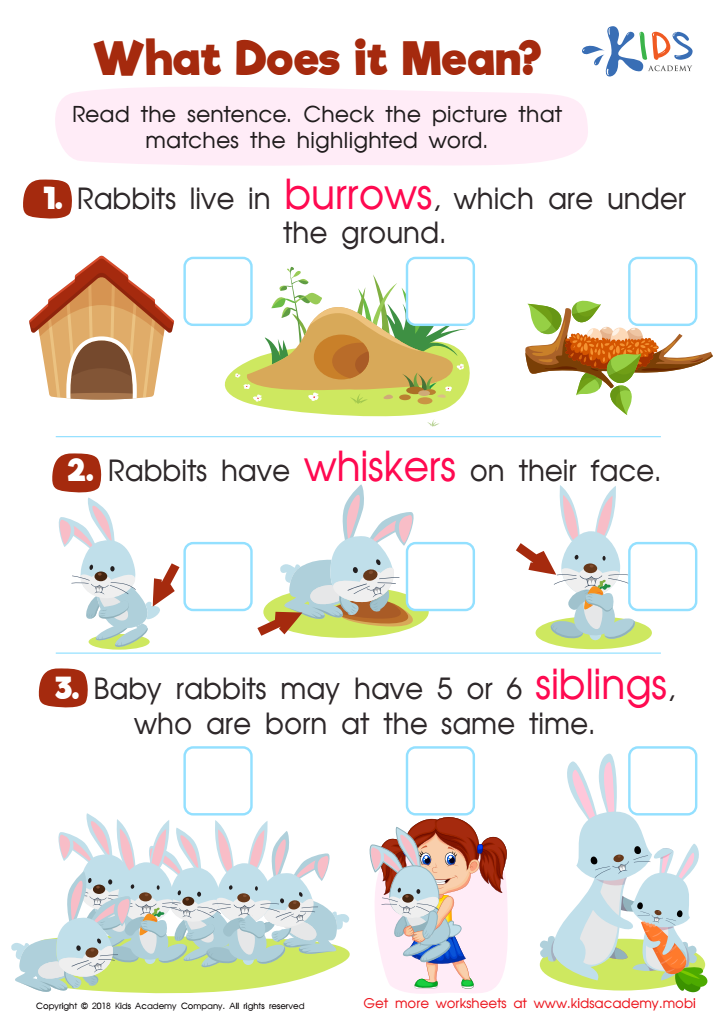

What Does It Mean? Worksheet
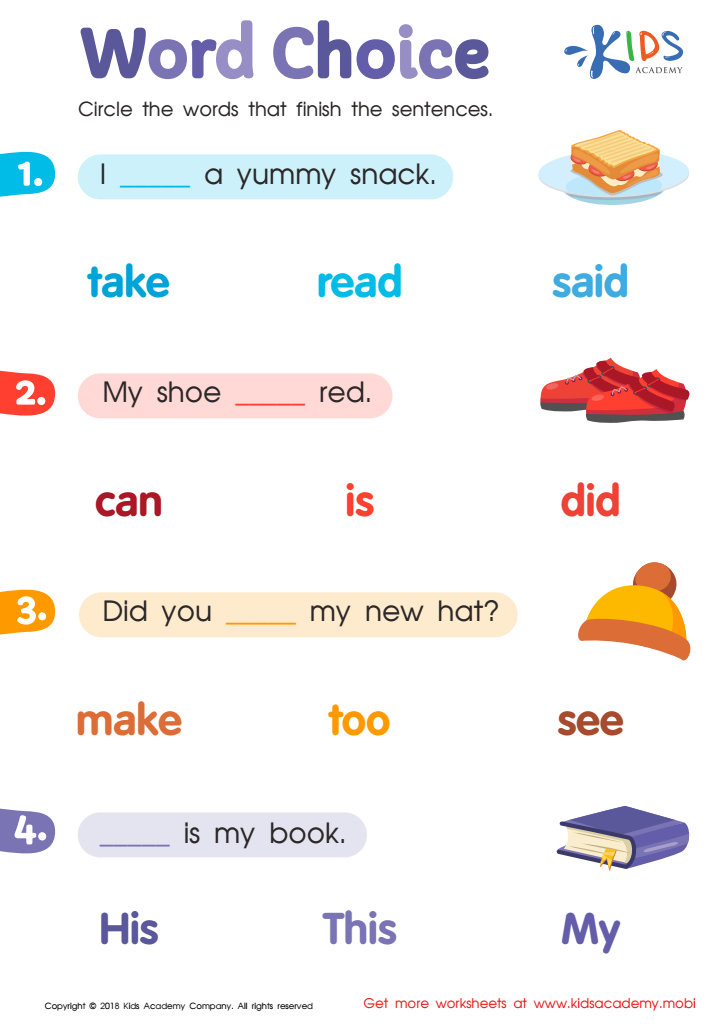

Word Choice Worksheet
Contextual understanding in reading for 6-year-olds is crucial for several reasons. At this age, children are not only learning to read but also beginning to interpret and interact with the world around them. When parents and teachers emphasize contextual understanding, they help children connect words on a page to their real-life experiences, enhancing comprehension and retention.
For young readers, grasping the context of a story—such as its setting, characters, and events—can spark imagination and empathy. This deeper level of engagement makes reading more enjoyable and relevant. When children understand the context, they are better equipped to make predictions, draw inferences, and engage in discussions about the material, fostering critical thinking skills.
Moreover, comprehension struggles can lead to frustration and disengagement from reading. By nurturing contextual understanding, educators and caregivers can build a strong foundation for literacy skills, encouraging a lifelong love of reading. Additionally, it can help identify gaps in understanding that need addressing, as children can show more confidence articulating their thoughts when they understand the story's context.
Ultimately, supporting contextual understanding not only benefits reading development but also aids in social and emotional growth, preparing children for future academic success and meaningful communication.
 Assign to My Students
Assign to My Students




















